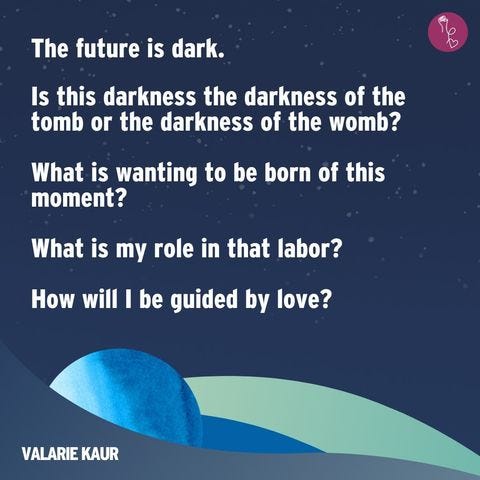This morning, a dear friend asked how we survive. I said that the most important word in that question was “we.” Beyond that I did not know the details. But I did recall a poem.
Making Peace BY DENISE LEVERTOV A voice from the dark called out, ‘The poets must give us imagination of peace, to oust the intense, familiar imagination of disaster. Peace, not only the absence of war.’ But peace, like a poem, is not there ahead of itself, can’t be imagined before it is made, can’t be known except in the words of its making, grammar of justice, syntax of mutual aid. A feeling towards it, dimly sensing a rhythm, is all we have until we begin to utter its metaphors, learning them as we speak. A line of peace might appear if we restructured the sentence our lives are making, revoked its reaffirmation of profit and power, questioned our needs, allowed long pauses . . . A cadence of peace might balance its weight on that different fulcrum; peace, a presence, an energy field more intense than war, might pulse then, stanza by stanza into the world, each act of living one of its words, each word a vibration of light—facets of the forming crystal. Copyright Credit: Denise Levertov, “Making Peace” from Breathing the Water. Copyright © 1987 by Denise Levertov.
I love this idea of “restructuring.” In my last post of this series, I was trying to call attention to social networks, the most rudimentary form of social structure. I was recommending that we use an awareness of weak ties to connect close–knit groups together. The idea of the power of words has resonance with what my yoga teacher had shared about the matrika śakti, the “little mothers” of the power of words.
This reminded me of Valerie Kaur’s speech at the “Watch Night Service” in 2016, the last time that Trump was elected.
I love how Kaur ties together communities, much as I envision we’d use weak ties to link affinity groups. The response is resounding across communities. Rev. William Barber, who’s called for a “moral revival,” responds in a way appropriate to his faith, exclaiming “my, my” as her rhetoric escalates “What if this is the darkness, not of the tomb, but of the womb…. What does the midwife tell us to do, ‘Breathe, and push.’” Every woman, “little mother” or not, understands this call. People say these words in unison with her, “breathe… and push.”
It’s high time I read her book See No Stranger, especially as she’s already got another one out, Sage Warrior, which asks the following questions, anticipating those of my friend.
How do we find the wisdom to envision a new world and the courage to fight for it?
How do we survive seemingly apocalyptic times?
In a world on fire, how do we embrace love and joy?
As a practical matter, on Wednesday evening, Valerie Kaur is playing host to a “Post–Election Healing Circle.”
I did say “practical matter.” I expect this to be constructive mourning, like the political funerals, symbolic and otherwise, that arise when people speak truth to power.
As Kaur argues,
When we choose to be brave with our love, when we choose to refuse to leave anyone outside of our circle of care, that’s when love becomes revolutionary.
That’s a moral and spiritual way of saying what I was saying in my last post from a sociological perspective. But I love the poetry of this. Let us restructure “the sentence our lives are making,” as Levertov says. Real soon now, I’ll explain why there’s hope in restructuring.




